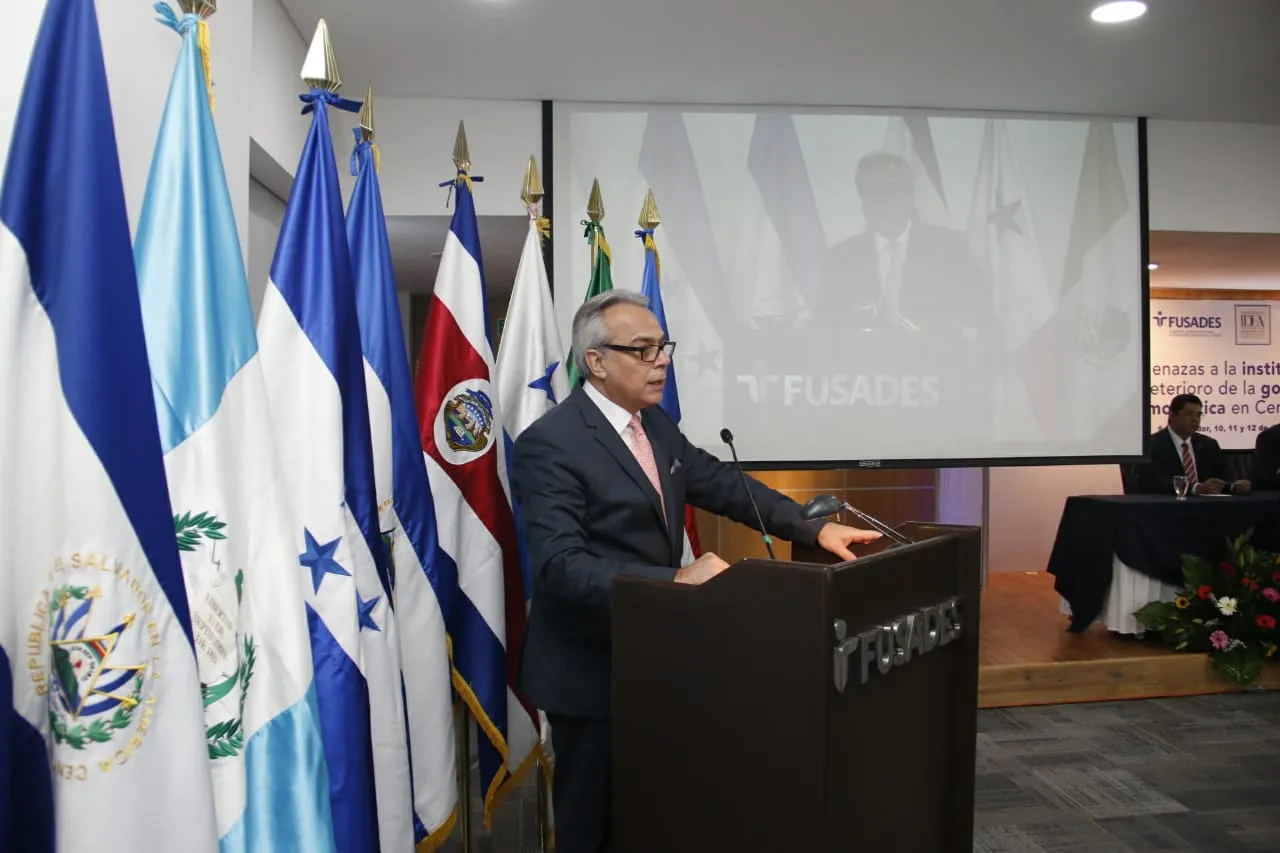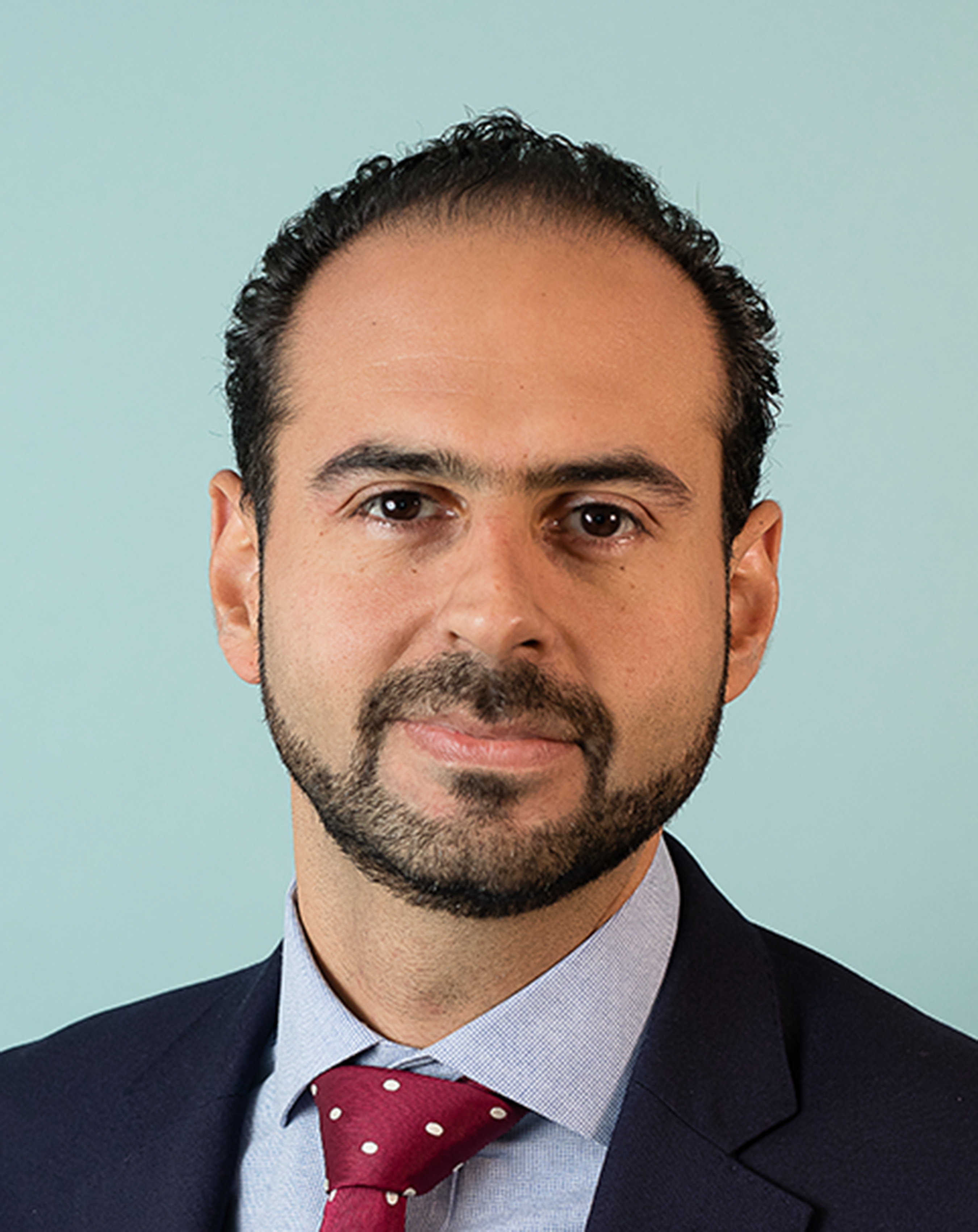Leaders discuss institutional threats and the retreat of democratic governance in Central America

Much has passed since the start of the third wave of democracy in Latin America 40 years ago. The number of electoral democracies in the region has increased substantially and now, more people than ever choose their leaders democratically through free and fair elections and live in societies where freedom of speech and association are not only respected but also encouraged. In Central America, civil war has ended and conflict is now processed peacefully.
Este artículo se encuentra disponible en Español.
However, there are many worrying signs. Corruption, a weak rule of law, violence and insecurity are rampant. This goes hand in hand with slim economic growth, limited investment and unemployment. Failing pension systems, an overwhelming informal economy and a migration crisis complete this stark picture. 84 per cent of the population is unsatisfied with how their economy is working. At the same time, governments have lost much of their capacity to deal with these issues. While democracy has provided freedom, governments have not provided equality, growth or development. It is time to catch up.
As a result, people are increasingly dissatisfied with their governments and political regimes. Satisfaction with democracy has declined for seven consecutive years, reaching its lowest level since the 2001 economic crisis. In Latin America, only 48 per cent of the population support democracy. Three Central American countries are placed at the bottom part of the scale: in Honduras only 34 per cent of the population support democracy, while in El Salvador and Guatemala, this figure drops to a stunning 28 per cent.
Confidence in key democratic institutions such as elections, political parties and parliaments has also reached historically low levels. Most importantly, 28 per cent of the population are indifferent towards having an authoritarian regime, while 15 per cent would prefer an autocratic government if it would solve their problems.
Authoritarianism does not solve problems. To address these and other issues, on 11 and 12 December, International IDEA, Salvadorean Foundation for Economic and Social Development (FUSADES) and the Hanns Seidel Foundation have organized the Forum “Institutional threats and the retreat of democratic governance in Central America”, held in San Salvador, El Salvador.
50 participants representing a variety of sectors (business, civil society, politics and academia) from Mexico, Guatemala, El Salvador, Honduras, Nicaragua, Costa Rica, Panama and the Dominican Republic reflect, discuss and analyse issues such as the region’s political-electoral context; socio economic structures; violence and insecurity; rule of law and corruption; social media and fake news; migration and the priorities and challenges faced by international agencies and donors.
From International IDEA, our proposal is to put forward an agenda that helps recover trust in politics and institutions while updating our approach to development. For achieving this, Daniel Zovatto, International IDEA’s Regional Director for Latin America and the Caribbean, has proposed widening spaces for citizen participation, improving the quality of public policies, and redefining the terms for a ‘new generation democracy’ that is able to address complex challenges, overcome them, and innovate. The main goal is to strengthen institutions and democratic governance in the region, and the key for this lies in supporting the resiliency of democracy.
International IDEA’s delegation was headed by Daniel Zovatto, and Miguel Angel Lara Otaola, Head of the sub regional office for Mexico and Central America. This seminar complements previous events held in Panama - Iberoamerican Conference on Electoral Justice, August 2018; Mexico - Future of Democracy Colloquium, October 2018; and Costa Rica - Electoral Integrity and Electoral Justice Seminar, November 2018- as part of the activities of the sub regional office since its setting up on April, 2018.
The program for the forum is available here.




